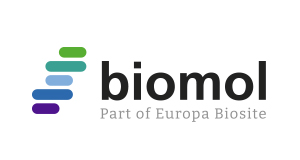Monocyte Chemotactic Protein-1/MCAF (CCL2), His Tag, human recombinant (rHuMCP1-His)
Monocyte Chemotactic Protein-1/MCAF (CCL2), His Tag, human recombinant (rHuMCP1-His)
SKU
BOL97335.10
Packaging Unit
10 µg
Manufacturer
Biomol
Availability:
loading...
Price is loading...
Kategorie: Cytokines
Formulation: purified
Storage: -20°C
Weight: 10900 D
Description: Chemotactic factor that attracts monocytes and basophils but not neutrophils or eosinophils. Augments monocyte anti-tumor activity. Has been implicated in the pathogenesis of diseases characterized by monocytic infiltrates, like psoriasis, rheumatoid arthritis or atherosclerosis. May be involved in the recruitment of monocytes into the arterial wall during the disease process of atherosclerosis. (www.uniprot.org) Recombinant human MCP-1 also known as Monocyte Chemotactic and Activating Factor (MCAF) produced in E.coli is a non-glycosylated, polypeptide chain containing 97 amino acids (24-99) and having a molecular mass of 10.9 kDa. The MCP-1 is fused to 20 amino acids His-Tag at N-terminus. Chemokine (C-C motif) ligand 2 (CCL2) is a small cytokine belonging to the CC chemokine family that is also known as monocyte chemotactic protein-1 (MCP-1). It is found at the site of tooth eruption and bone degradation. In the bone, CCL2 is expressed by mature osteoclasts and osteoblasts and is under the control of nuclear factor kappaB (NFkappaB). CCL2 recruits immune cells, such as monocytes, to sites of tissue injury and infection. This chemokine is produced as a protein precursor containing signal peptide of 23 amino acids and a mature peptide of 76 amino acids. It is a monomeric polypeptide, with a molecular weight of approximately 13kDa. As with many other CC chemokines, CCL2 is located on chromosome 17 in humans. The cell surface receptors that bind CCL2 are CCR2 and CCR5.
Formulation: purified
Storage: -20°C
Weight: 10900 D
Description: Chemotactic factor that attracts monocytes and basophils but not neutrophils or eosinophils. Augments monocyte anti-tumor activity. Has been implicated in the pathogenesis of diseases characterized by monocytic infiltrates, like psoriasis, rheumatoid arthritis or atherosclerosis. May be involved in the recruitment of monocytes into the arterial wall during the disease process of atherosclerosis. (www.uniprot.org) Recombinant human MCP-1 also known as Monocyte Chemotactic and Activating Factor (MCAF) produced in E.coli is a non-glycosylated, polypeptide chain containing 97 amino acids (24-99) and having a molecular mass of 10.9 kDa. The MCP-1 is fused to 20 amino acids His-Tag at N-terminus. Chemokine (C-C motif) ligand 2 (CCL2) is a small cytokine belonging to the CC chemokine family that is also known as monocyte chemotactic protein-1 (MCP-1). It is found at the site of tooth eruption and bone degradation. In the bone, CCL2 is expressed by mature osteoclasts and osteoblasts and is under the control of nuclear factor kappaB (NFkappaB). CCL2 recruits immune cells, such as monocytes, to sites of tissue injury and infection. This chemokine is produced as a protein precursor containing signal peptide of 23 amino acids and a mature peptide of 76 amino acids. It is a monomeric polypeptide, with a molecular weight of approximately 13kDa. As with many other CC chemokines, CCL2 is located on chromosome 17 in humans. The cell surface receptors that bind CCL2 are CCR2 and CCR5.
| SKU | BOL97335.10 |
|---|---|
| Manufacturer | Biomol |
| Manufacturer SKU | 97335.10 |
| Package Unit | 10 µg |
| Quantity Unit | STK |
| Reactivity | Human |
| Host | Escherichia Coli |
| Product information (PDF) | Download |
| MSDS (PDF) |
|

 Deutsch
Deutsch






